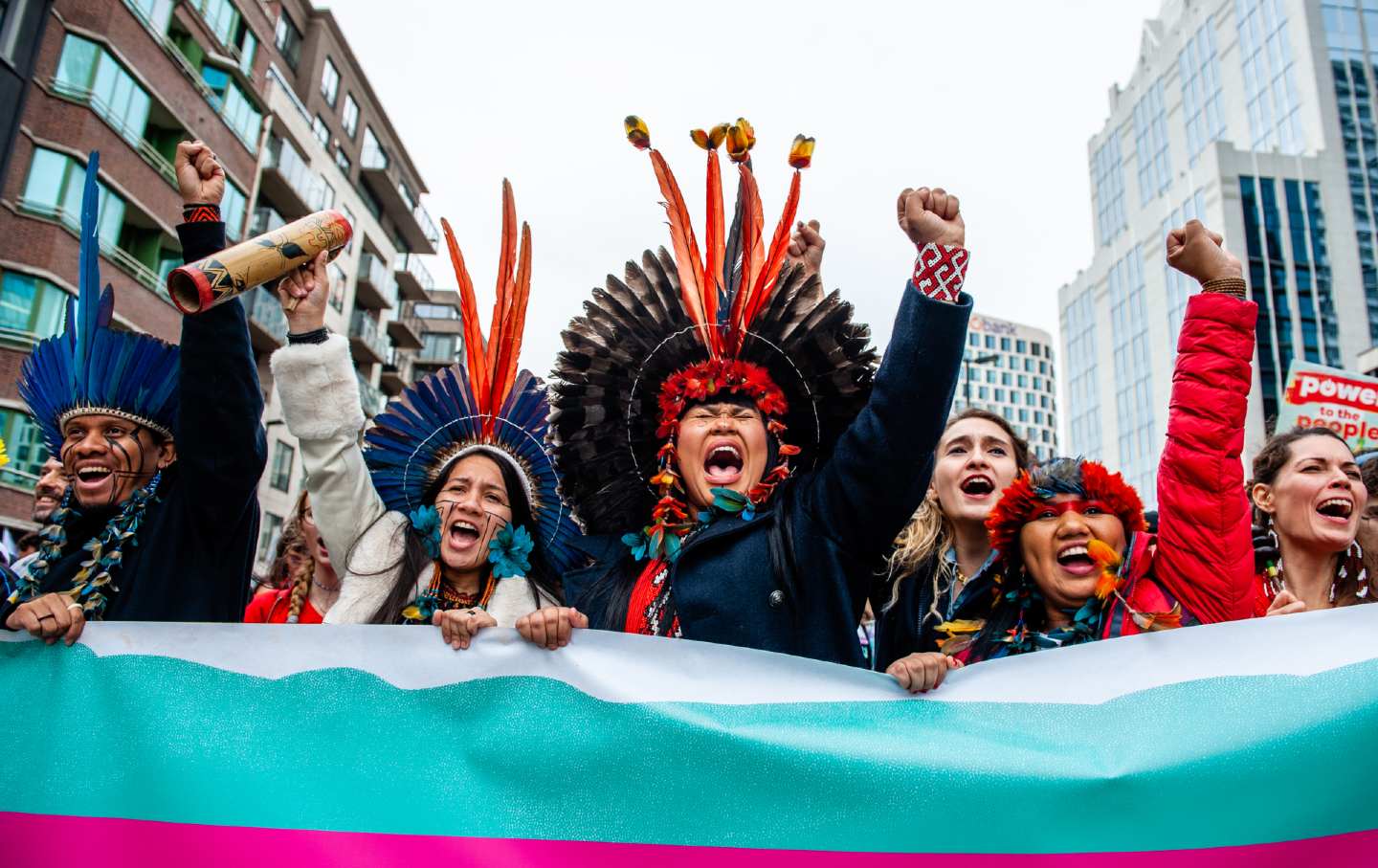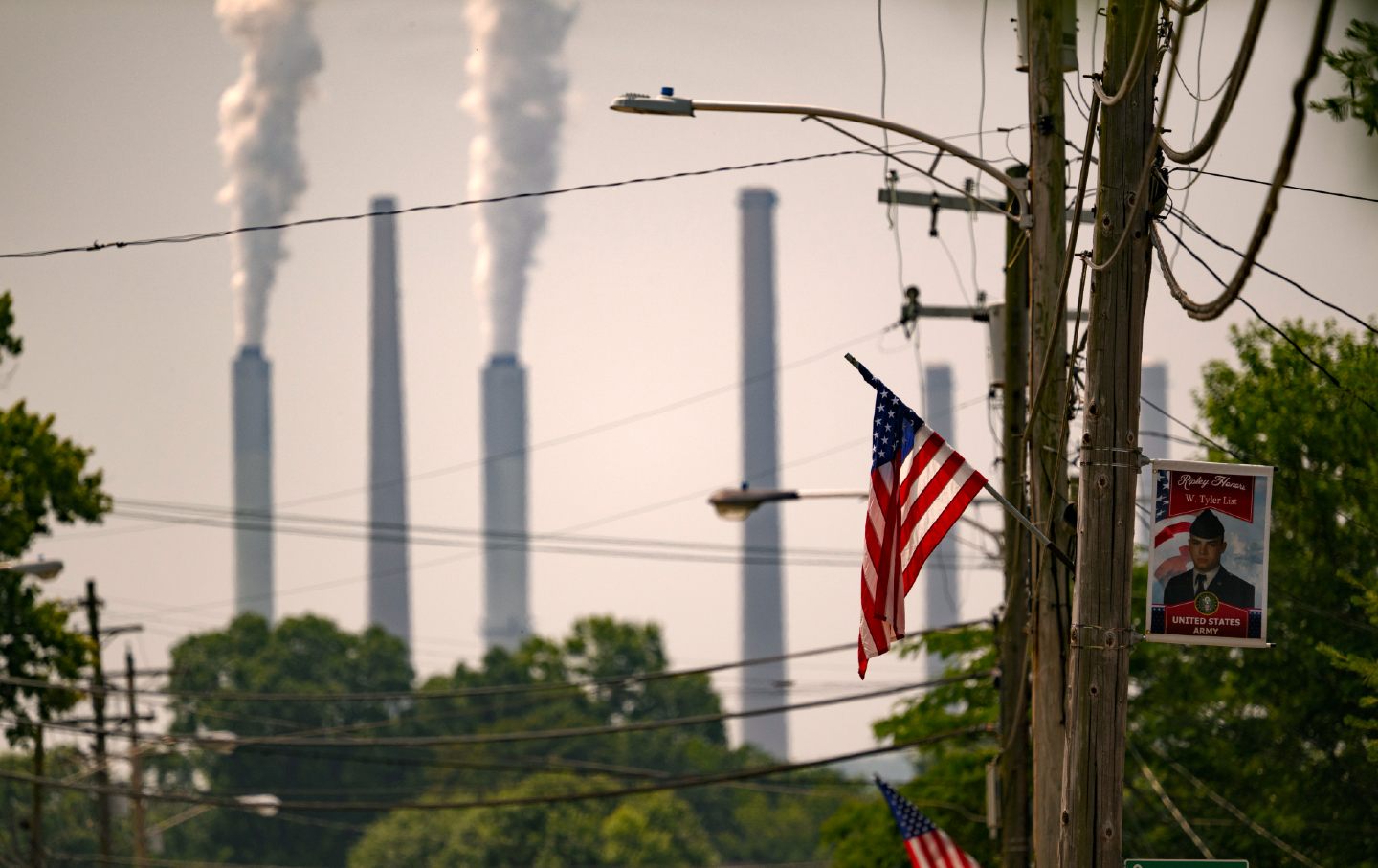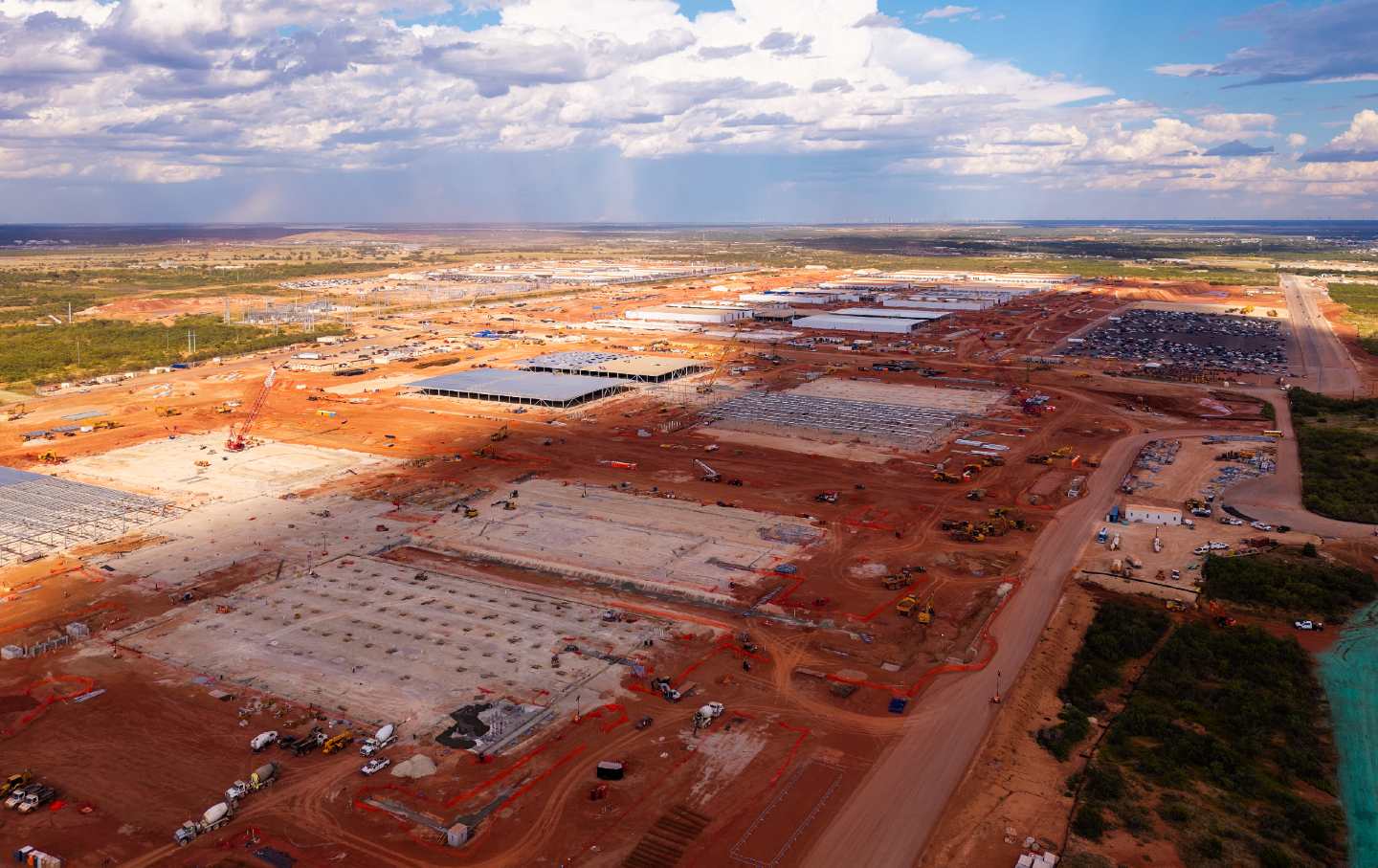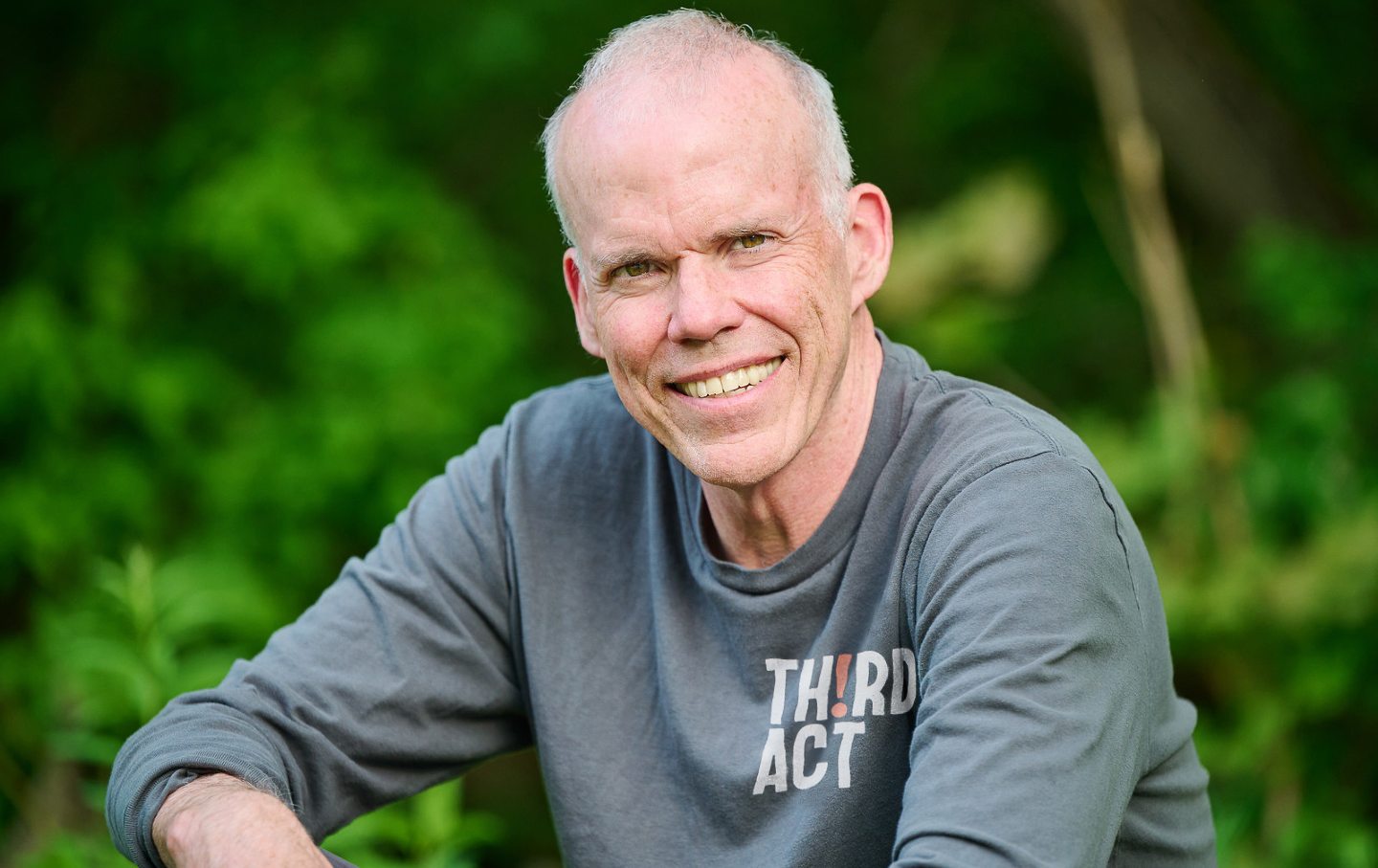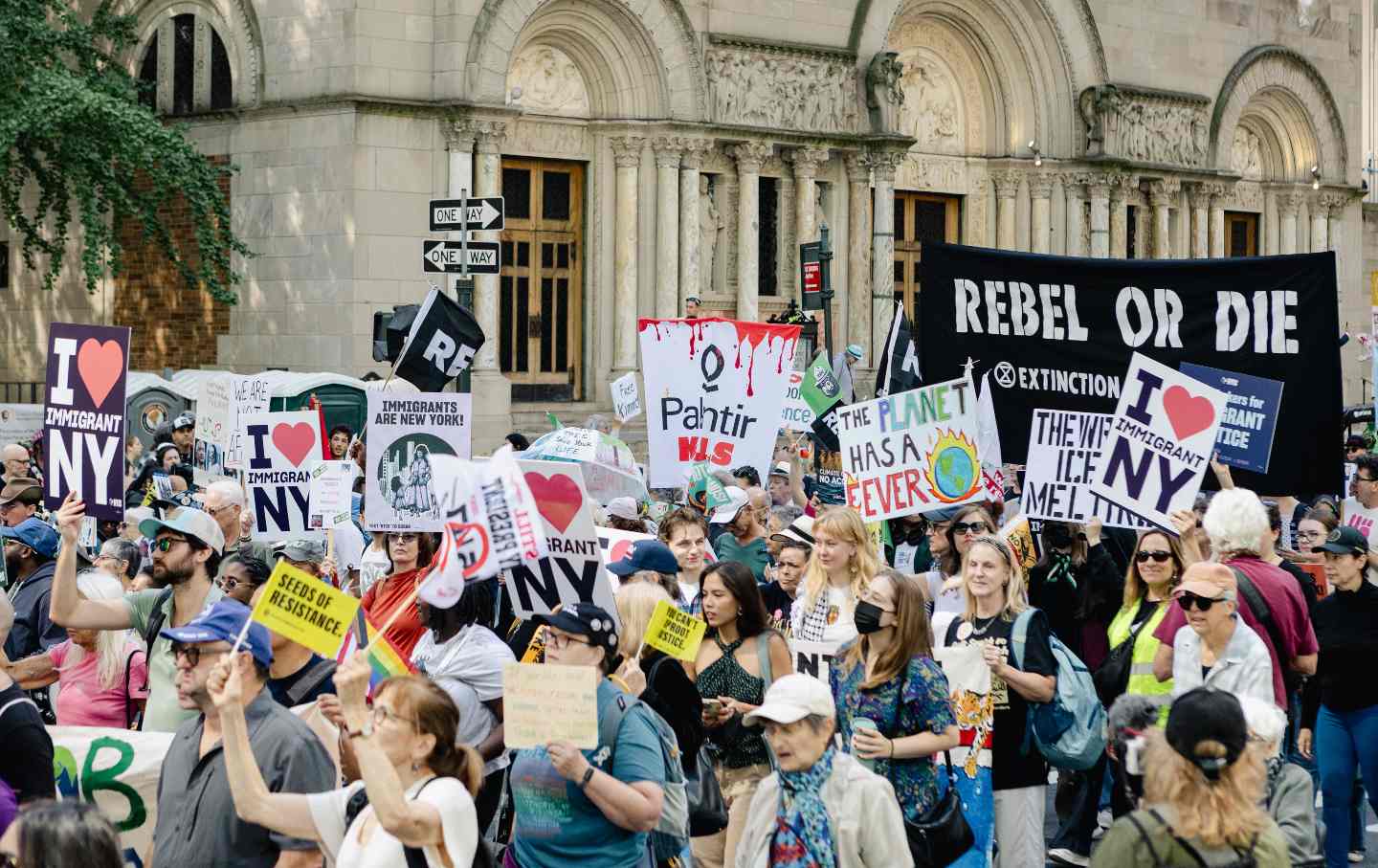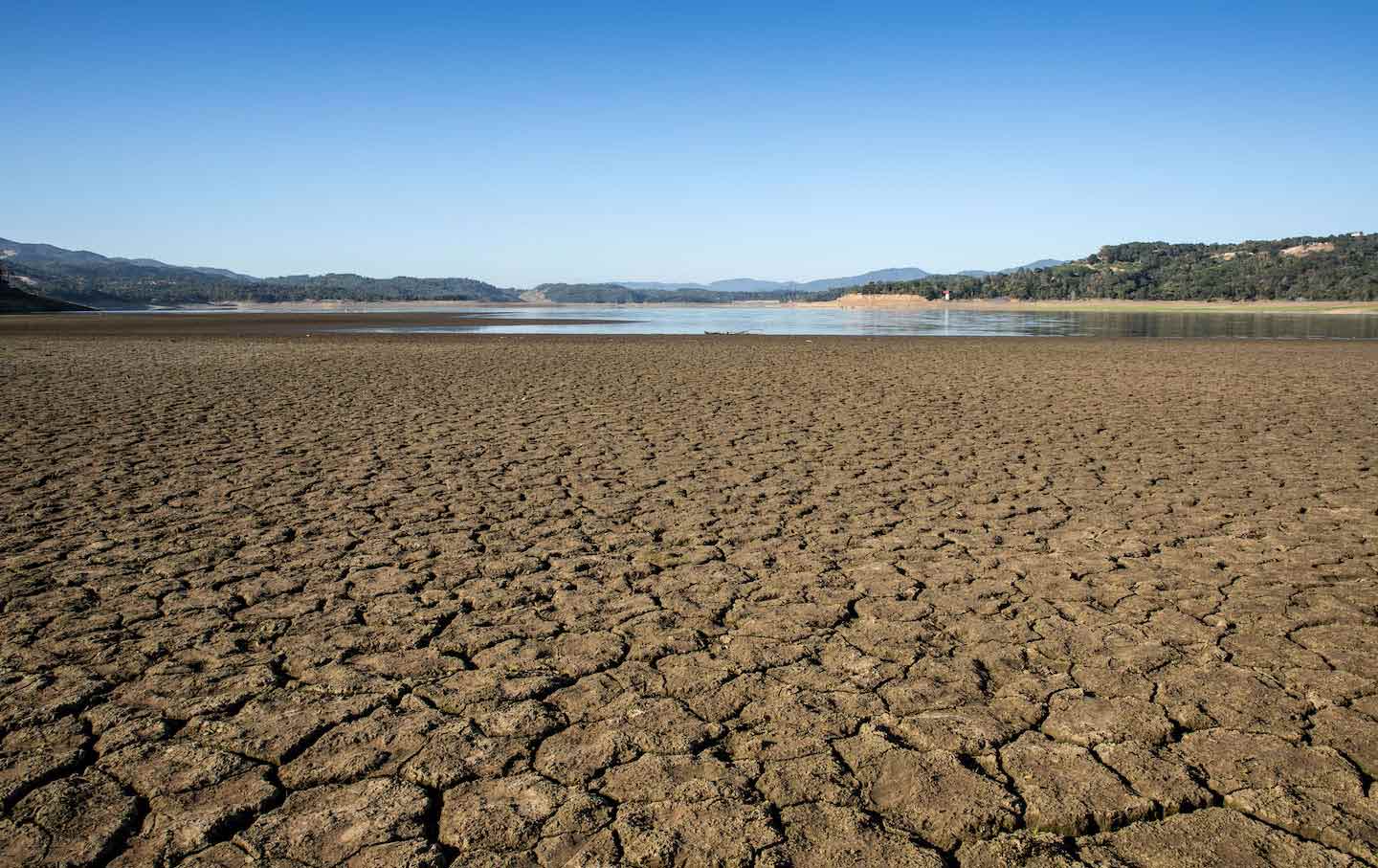/
October 27, 2025
Edelman invented the fossil fuel narratives, and now it’s running communications for COP30. All the while, frontline communities are telling very different stories.
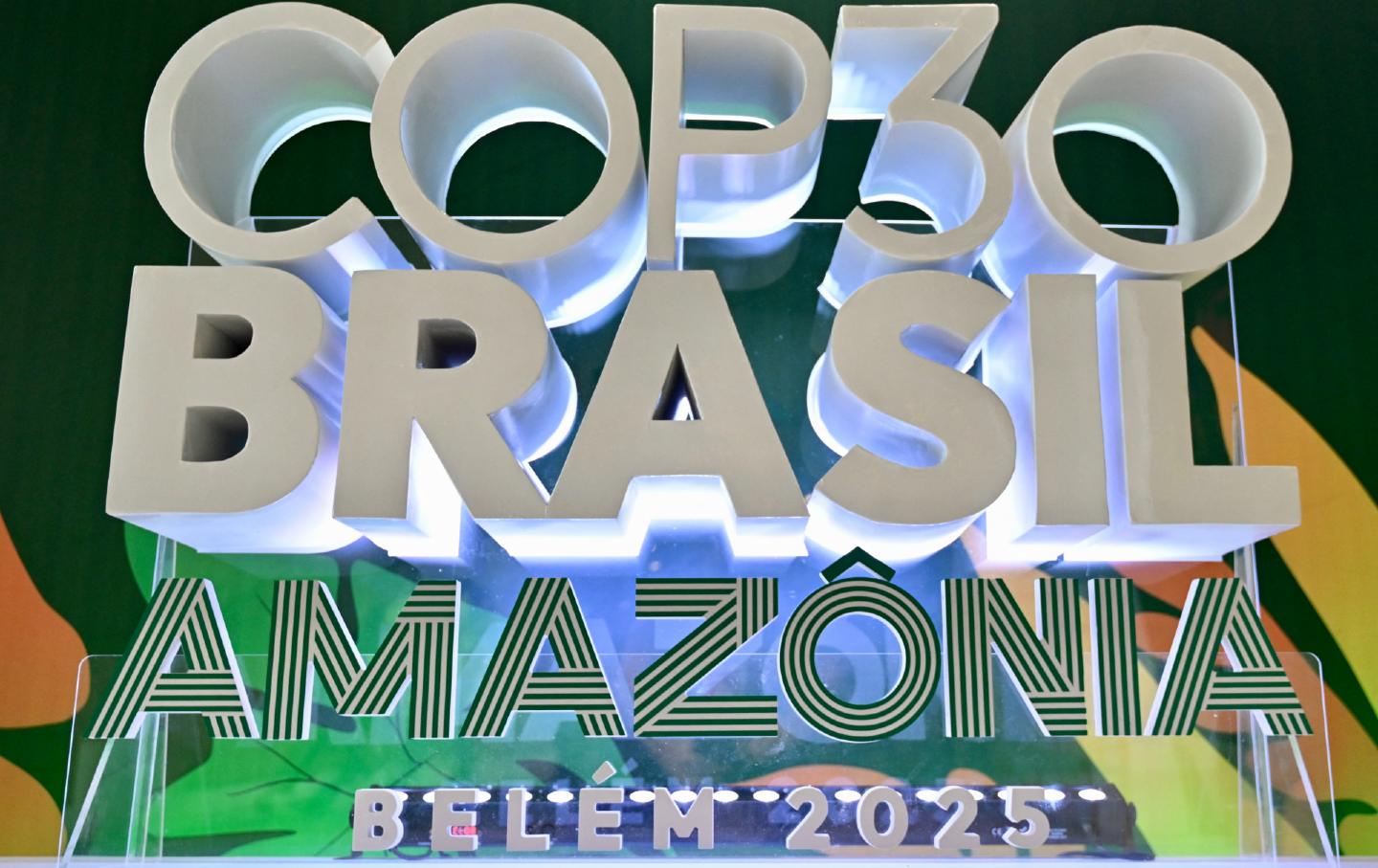
The COP30 logo is displayed at a preparatory meeting bringing together ministers responsible for climate negotiations in Brasília, Brazil, on October 13, 2025.
(Evaristo Sa / AFP via Getty Images)
When the history of the climate crisis is written, oil and gas companies will rightfully stand accused of wrecking the planet. And right behind them will be their public relations firms. Few corporations have protected fossil fuel companies’ reputations and shaped how the public understands the crisis itself as effectively as Edelman. The world’s largest PR agency has spent decades burnishing the image of major polluters, from Shell and Chevron to ExxonMobil. And now, it’s been handed the job of branding the world’s most important climate summit.
This year the firm was awarded an $835,000 contract to run communications for COP30—the next United Nations climate conference—set to take place in Belém, Brazil, in November 2025. Brokered by the United Nations Development Program (UNDP), the deal tasks Edelman with “crafting a strategic narrative,” shaping international media coverage, producing digital content, and navigating PR crises for the Brazilian COP30 presidency.
On its face, this might sound routine. But the same Edelman executive overseeing the firm’s work with Shell in Brazil, where the company is ramping up oil and gas production, will also be shaping the global story of COP30. Ana Julião, Edelman’s Brazil chief and one of the firm’s most decorated executives, is among half a dozen staffers assigned to the COP30 account, according to Climate Home News. Julião has nearly three decades of experience helping companies like Shell, Petrobras, and Chevron safeguard their reputations, and now she will be responsible for shaping the world’s climate narrative.
Current Issue
Edelman’s fingerprints are all over the fossil fuel industry’s decades-long effort to delay action and muddy public opinion. Take ExxonMobil’s “Exxchange” platform. Managed by Edelman, it flooded social media with fear-based messaging designed to turn public sentiment against climate legislation, warning of job losses, tax hikes, and threats to “energy independence.” It even mobilized constituents to lobby Congress directly to block climate bills.
Or consider Edelman’s work for Shell, where the company used youth-focused marketing campaigns on TikTok to emotionally rebrand itself as a climate leader. One campaign featured a polar expedition powered by Shell’s biofuels that reached nearly 600 million people, while another promoted “nature-based solutions” that analysts say if it were actually enacted would require more carbon offsets than currently exist on Earth. According to Clean Creatives, Edelman helped Shell project climate leadership while it planned to increase oil and gas output by more than 20 percent over the next decade.
Edelman appears to be leveraging decades of lucrative fossil fuel work into a position of influence over how the climate crisis itself is framed. To someone who has spent years scrutinizing how the climate story is told, the problem is much deeper than a procedural conflict of interest. UNDP may insist that no formal rules were broken, but the concern isn’t simply bureaucratic but structural. It’s about who gets to define the crisis, who is trusted to articulate the solutions, and whose voices are systematically sidelined in the process. Stories shape consent, build legitimacy, and define what’s politically possible. For fossil-fuel companies and the institutions entwined with them, controlling the story is often more strategic than controlling the oil pipelines themselves. These corporations understand something essential: Narrative is power.
The fight over narrative doesn’t stop in climate conferences and corporate boardrooms, and it extends into the halls of our government. In a striking example of how language itself becomes a battleground, the US Department of Energy recently added “climate change,” “green,” and “decarbonization” to a list of banned words in its Office of Energy Efficiency and Renewable Energy: the very agency tasked with reducing emissions. The move is part of a broader pattern of efforts to dispute, silence, or downplay the crisis. It underscores how political power can shape not just climate policy but even the very terms in which the crisis is discussed.
This is why Edelman’s contract to “craft a strategic narrative” is so important. It gives Edelman an opportunity to shape the global imagination—to reframe fossil fuels as “essential to energy security” and turn a moment of accountability into a photo-op of progress.
It’s also why many people no longer trust climate summits. Year after year, Western governments make grand promises while emissions rise, fossil-fuel executives flood the halls, and PR firms spin incremental gains into historic breakthroughs—all while those same delegates fly around the world on private jets to negotiate half-measures. Edelman’s presence at COP30 will deepen that credibility gap.
Yet the fossil fuel narrative is not the only one shaping the public conversation. Across the world, frontline activists, movement organizers, and mission-driven communications firms are advancing radically different stories—ones aimed at transforming the economic and political structures that allow pollution, inequality, and corporate power to persist. These narratives don’t sanitize the violence of the fossil economy: They highlight the poisoned water, asthma-choked air, stolen land, and cultural erasure. Nor are they based on the premise that fossil-fuel expansion is inevitable. Instead, they offer blueprints for a different future. One built on scalable solutions, collective power, and community sovereignty.
These stories are not hypothetical. They are unfolding now: in the resistance to petrochemical build-out in Louisiana’s “Cancer Alley,” in Indigenous Land Back wins, and youth activists holding fossil fuel giants to account. And they don’t stop at resistance—they also chart a pathway forward. That includes advancing principles like a just transition, which envisions an economy that prioritizes workers, public health, and community well-being over fossil fuel profits. Another principle is “polluter pays,” holding the corporations most responsible for environmental harm accountable for the costs of remediation and resilience.
This approach isn’t new. It builds on legal precedents like the federal Superfund law, passed in 1980, which requires industries to pay for the cleanup of toxic waste sites rather than leaving taxpayers with the bill. Today, that principle is being expanded to meet the scale of the climate crisis. Instead of families and frontline towns bearing the costs of adaptation, disaster recovery, and infrastructure upgrades, polluter-pays frameworks would shift the burden to those who have profited from extraction and pollution in the first place.
These ideas are solidly grounded in policy proposals, but they’re also narrative interventions. They redefine what the climate story looks like: structural accountability, public investment, and solutions designed by and for the people.
Popular
“swipe left below to view more authors”Swipe →
This is the mission behind A People’s Climate—a Nation and Counterstream Media podcast that brings together frontline voices, cultural narratives, and political analysis to tell the story of the climate crisis from the ground up, not as a branding challenge to be managed but as a fight for democracy, justice, and survival.
On the show, I speak with Indigenous leaders like Amy Bowers Cordalis, who led the largest undamming project in US history to defend tribal sovereignty; Black farming visionaries such as Leah Penniman, who is transforming agriculture into a tool for liberation; and community leaders like Elizabeth Yeampierre, who just launched a solar energy cooperative in Brooklyn.
These conversations reveal something PR firms like Edelman would rather keep buried beneath flashy campaigns and corporate messaging: The solutions we need already exist. They’re being built by people whose work challenges the very system those campaigns are designed to protect—like Diane Wilson’s decades-long fight against Formosa Plastics in Texas, which resulted in a $50 million Clean Water Act settlement driven by her relentless citizen science campaign.
As COP30 approaches, we face a fundamental question: Who gets to tell the story of the climate crisis? Will it be written by those who profit from its continuation, wrapped in the language of “strategic narratives”? Edelman’s entanglement with both fossil fuel giants and the summit meant to hold them accountable lays bare the stakes: Far more than a single contract or event, it’s about whether our future will be defined by PR spin or by people power.
The story of COP30 and of the decade ahead is still being written. The question is whom we will trust to write it.
Shilpi Chhotray is the host of A People’s Climate, a new podcast from Counterstream Media and The Nation. New episodes every Saturday, starting September 27.
More from The Nation
The next phase of The 89 Percent Project profiles climate’s supermajority.
What drives Trump’s politics is nostalgia for the age of coal, when dirty fuel and no environmental regulations created his version of a great America.
It’s not hostile super robots you should worry about—it’s the heat they’ll generate.
Traditional journalists complain that he is an advocate—the same criticism Woodward and Bernstein faced during Watergate.
The “Make Billionaires Pay” march might hint at where the climate movement is headed—away from fossil fuel divestment and toward broader resistance, with fewer young people.
/
Will aquifers become the United States’ strategic reserves, alongside oil reserves and the nuclear weapons we keep in “reserve” to protect our wealth?


